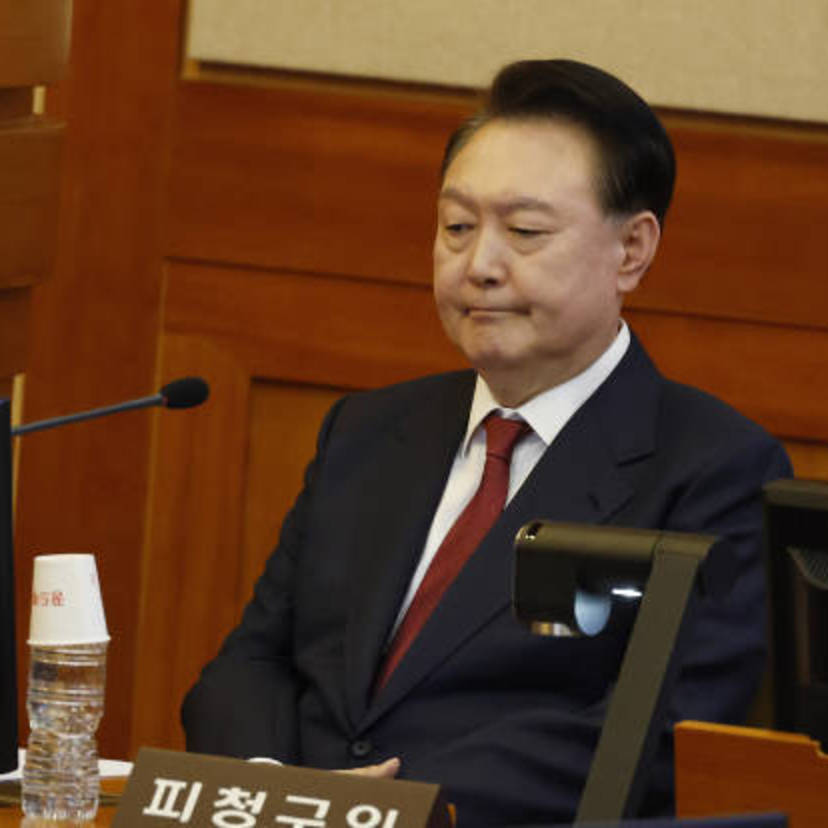On February 11, President Yoon Suk-yeol, currently detained on charges of inciting insurrection, issued a statement through his defense lawyers: "The people are defending our liberal South Korea, and so we will prevail against the current impeachment ploy.” It’s a bold statement—but what exactly does Yoon mean by “impeachment ploy”?
Immediately after 12.3 emergency martial law was lifted, the main opposition Democratic Party pushed forward an impeachment motion against Yoon in the National Assembly, accusing the president of mobilizing the military for political purposes and orchestrating an insurrection. While their initial attempt failed, the opposition ultimately passed the bill on December 14, with support from some ruling party lawmakers. The term “insurrection” appears a striking 29 times in the impeachment article, accounting for over 70 percent of the charges.
However, the charge of insurrection is clearly defined in South Korea’s Penal Code. According to Articles 87 and 91, an insurrectionist is “anyone who attempts to neutralize the existing constitution, laws, or state organs by force and incites a riot in the process.” The events surrounding the December 3 martial law and its aftermath were broadcast live worldwide, and there is no evidence that the martial law forces sought to neutralize any laws or dismantle state institutions. Notwithstanding, the opposition branded President Yoon an insurrectionist, persistently shaping this narrative for public consumption.
As if to reinforce the opposition’s narratives, several high-ranking officials and military personnel involved in the December 3 martial law spewed out unverified testimonies. In particular, former special forces commander Kwak Jong-geun confirmed during a December 10 parliamentary hearing that President Yoon called him during martial law and ordered him to “break down the doors of the National Assembly and pull out lawmakers.” Similarly, Hong Jang-won, former deputy chief of the National Intelligence Service (NIS), testified that Yoon instructed him over the phone shortly after the martial law was declared, saying, “Take this opportunity to round them up, clean them all up.” To support his claims, Hong presented a memo allegedly written during a call with counterintelligence commander Yeo In-hyung, in which Yeo purportedly listed over ten individuals, including opposition leader Lee Jae-myung, as targets for arrest and requested assistance in detaining them. These testimonies became key evidence in the National Assembly’s impeachment vote against Yoon and served as the basis for Yoon's detention and indictment.
The problem, however, is that their testimonies have been repeatedly contradicted, and in the case of Hong’s memo, growing evidence suggests that the circumstances surrounding its drafting were falsified. Increasing reports also indicate that opposition lawmakers may have pressured or coerced both men into providing damaging testimony against the president. Fundamentally speaking, declaring martial law is an executive power explicitly granted to the president by the Constitution, and there has never been a legal dispute over Yoon’s authority to do so. To frame Yoon as the mastermind of an insurrection, therefore, the opposition needed proof that he had ordered the paralysis of the National Assembly and sought the arrest of lawmakers attempting to lift the decree. Kwak Jong-geun and Hong Jang-won’s testimonies conveniently provided just that. Thus began the opposition-led “impeachment ploy” against the sitting president.



